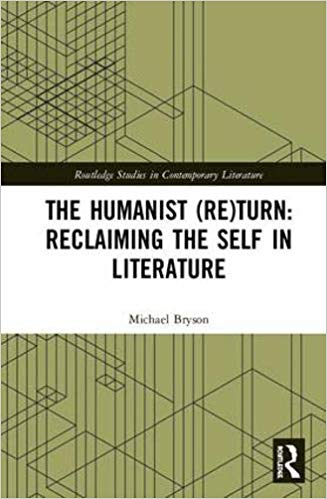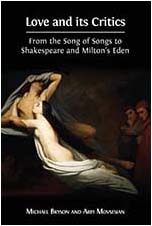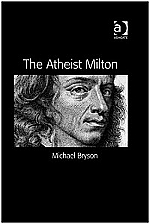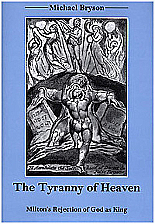|
-
The Humanist (Re)Turn: Reclaiming
the Self in Literature
(Routledge,
2019)

This book argues for a renewed emphasis on humanism—against
“the anti-humanism” of the last several decades of
literary/theoretical scholarship, from the decentering of
the author in Mallarmé, Barthes, and Foucault, to the
fragmented—even disappearing—subject of Frederic Jameson, to
the “posthuman” perspectives of critics like Donna Haraway,
Richard Grusin, Rosa Braidotti, and others whose work
emphasizes the decentering of the human in favor of a turn
toward the nonhuman, whether understood in terms of animals,
affectivity, bodies, organic and geophysical systems,
materiality, or technology. It takes as its frame the idea
of transcendence, specifically in terms of what Pierre
Teilhard de Chardin calls a retournement dans l'Autre
[return (in)to the Other], and what Carl Jung refers to as
individuation. In each case, the dynamic is a turn toward
the Other (without or within).
-
Review of Timothy Rosendale,
Theology and Agency in Early Modern Literature.
Journal of British Studies 58.2 (Winter 2019), 430-32.
-
Carpe
Diem: Love, Resistance to Authority, and the Necessity
of Choice in Andrew Marvell and Elizabeth Cary
Humanities 2018, 7(2), 61
-
Review of Stephen Greenblatt,
The Rise and Fall of Adam
and Eve.
Spenser Review 48.2
(Spring-Summer 2018).
-
“The
Artist as Critic: Two Modern Musical Responses to
Paradise Lost.”
Milton Quarterly, Vol. 51, No. 2, 2017, 146-52.
-
Love and its Critics: From the Song of Songs to Shakespeare
and Milton's Eden
Open Book Publishers,
2017.

This book re-imagines the
relationship between love, poetry (and literature more
generally), and literary/theological/philosophical criticism
of poetry going all the way back to the Augustan era in
Rome. The book tells a story, relates a history of love,
through literature and its sometimes adversarial
relationship to the laws and customs, the political and
economic structures of the times and places in which that
literature was produced. But it is also relates a history of
the way love has been treated, not by our poets, but by
those our culture has entrusted with the “authority” to
maintain and perpetuate the understanding, and even the
memory, of poetry. Together with the tradition of love
poetry has grown a tradition of criticism that tends to
argue that what merely seems to be passionate love poetry is
actually properly understood as something else (worship of
God, subordination to Empire, entanglement within the
structures of language itself).
The pattern of such
criticism--from the earliest readings of the Song of Songs to
contemporary articles written about a carpe diem poem like
Robert Herrick’s “To the Virgins to Make Much of Time”--is to
argue that the surface or exterior of a poem hides the
“real” or “deeper” meaning, and that it is the critic’s job
to pull back or tear away that surface in order to expose
what lies beneath it. Employing a method Paul Ricoeur called
“les herméneutiques du soupçon” (the hermeneutics of
suspicion), such a reading strategy is a matter of cunning
(falsification) encountering an even greater cunning
(suspicion), as the “lies” and “false consciousness” of a
text are systematically exposed by the critic. In essence,
this book is an attempt to defend poetry against a kind of
criticism that treats poetry as an illusion that needs to be
debunked or an opponent that needs to be defeated.
-
Review of Gordon Teskey,
The Poetry of John Milton.
Spenser Review 45.3.15 (Winter 2016).
-
Review of William
Walker. Antiformalist, Unrevolutionary, Illiberal
Milton: Political Prose, 1644-1660.
Milton Quarterly, Vol. 49, No. 4, 2015, 275-79.
-
The Atheist Milton
Ashgate Press, 2012

This project argues that Milton was an
atheist in his own day, and would be an atheist were he alive today, Despite the deliberate provocation of
the title, I am trying to make a fairly nuanced case. “Atheism” meant different things in Milton’s day than it
does for us today. Essentially, the word has become narrower in scope
for us, less flexible in its capacity to carry shades of meaning.
“Atheist” tends to mean one thing today: someone who does not believe
in God. In Milton’s time, the term “atheist” was used in a much more
wide-ranging way: it could refer to someone who did not believe that
God existed, but more commonly it referred, not to unbelief, but to
variations in belief that were regarded by the accuser (and the word
is almost always an accusation rather than a self-chosen label) as
straying from orthodox belief, what I refer to in the book (with all
due irony) as correct belief as opposed to the incorrect belief of the
“atheist.”
My argument is
two-fold: based on his association with Arian ideas (denial of the
doctrine of the Trinity), his argument for the de Deo theory of
creation (which puts him in line with the materialism of Spinoza and
Hobbes), and his Mortalist argument that the human soul dies with the
human body, that Milton was an Atheist by the commonly-used
definitions of the period. And as the poet who takes a reader from the
presence of an imperious, monarchical God in Paradise Lost, to the
internal--almost Gnostic--conception of God in Paradise Regained, to the
absence of any God whatsoever in Samson Agonistes, Milton is the poet
of the atheists, pushing harder against that old “task-Master” than
any poet before or since.
-
"The Gnostic Milton:
Salvation and Divine Similitude in Paradise Regained"
The New Milton Criticism.
Eds. Peter C. Herman and Elizabeth Sauer, Cambridge UP,
2012, 102-19.
-
“The
Problem of God”
Approaches to Teaching Paradise Lost. 2nd ed. Ed.
Peter C. Herman. MLA Press, 2012, 76-83.
-
Review of Stephen Dobranski, ed.
Milton in Context.
Milton Quarterly, volume 46 issue 1 (March 2012),
29-31.
-
“From Last Things to First: The Apophatic Vision of Paradise Regained”
In Milton and the Visionary Mode: Essays on
Prophecy and Violence. Eds. Peter E. Medine and David V. Urban. Duquesne UP.
2010, pp. 241-265.
-
Review of Abraham Stoll,
Milton and Monotheism.
Renaissance Quarterly, volume 62 issue 4 (1 December
2009), 1391-1392.
-
“A Poem to the
Unknown God: Samson Agonistes and Negative Theology.”
Milton Quarterly, March 2008,
vol. 42, No. 1,
2008, 22-43.
-
"The Mysterious Darkness
of Unknowing:
Paradise Lost and the God Beyond Names."
In
A Poem Written In Ten Books:
Paradise Lost 1667, Eds. John Shawcross and Michael
Lieb. Duquesne UP, 2007, 183-212.
-
Review of Victoria Silver, Imperfect Sense: The
Predicament of Milton's Irony and David Loewenstein,
Representing Revolution in Milton and his
Contemporaries
Religion and
Literature
37.3 (Autumn 2005) 127-36.
-
The Tyranny of Heaven: Milton’s Rejection of God as King
U. Delaware Press. Read a sample of this book, or buy an
e-book edition
here.

-
“'His Tyranny Who Reigns': The Biblical
Roots of Divine Kingship and Milton's Rejection of Heav'n's
King”
Milton Studies
43, pp. 111-144, (2004)
-
“Dismemberment
and Community: Sacrifice and the Communal Body in the Hebrew
Scriptures”
Religion and Literature
35.1
(Spring 2003), pp. 1-21
-
“'That be far from thee': Divine Evil and
Milton's Attempt to 'Justify the ways of God to men'”
Milton Quarterly, May
2002, vol. 36, no. 2, pp. 87-105
-
“Thomas
Shadwell”
The Age of Milton: An Encyclopedia of Major 17th-Century
British and American Authors. Ed. Alan Hager. Greenwood Press,
2004
-
“The Horror is Us: Western Religious
Memory and the Colonialist God in Heart of Darkness”
Henry Street
(9.1), Spring
2000, pp. 20-39
Other Resources
-
Literary
Criticism From the Dead--a series of analyses/summaries of critical
positions from Plato to Postmodernism
-
Alchemy,
Witchcraft, and the Magus Figure in
The Tempest--notes for a
class discussion/lecture.
|
|
| | |